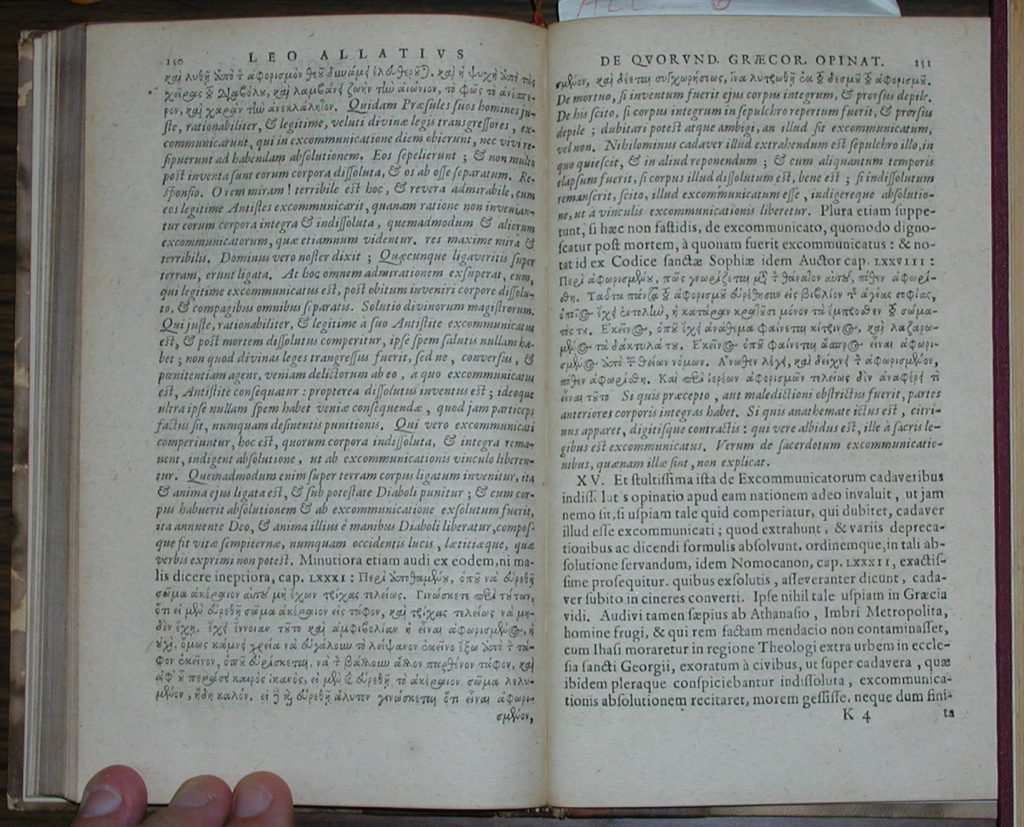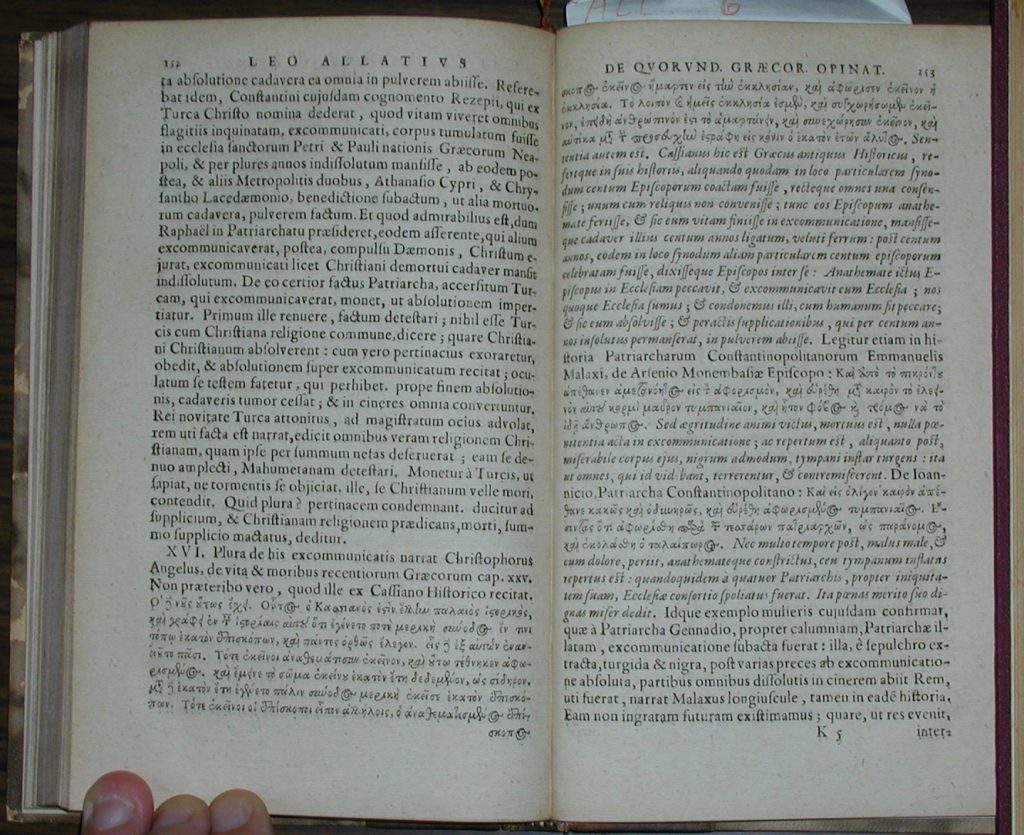|
This really foolish belief about the undecomposed corpses of excommunicated individuals is still so strong in Greece that, every time such a discovery is made, nobody ever doubts that it is the body of an excommunicated person. They exhume it and, by means of various types of prayers and spells, absolve it. The Nomocanon again, in chapter 82, explains in great detail what order must be observed in the absolution ritual. If everything is done correctly, Greeks claim with great conviction that the corpse turns immediately into ashes. I never actually witnessed anything of the sort. But I heard many such accounts from Athanasius, the Metroplitan of Imbros, a completely honest man who would never mix facts with fancy. While he was staying at the church of St. George in Iasos, outside the town of Theologos, Athanasius was asked by the locals to recite the absolution over many undecomposed bodies which were discovered there. Each time he complied, those bodies would dissolve into ashes before he could even finish the ritual. Athanasius also told me the story of one Constantine Rezep, a converted Turk who had been excommunicated for living a life marred by all kinds of depravity. His body, buried in the church of Sts. Peter and Paul in the Greek neighborhood of Naples, had remained undecomposed for many years until, upon receiving the absolution from him, Athanasius, and two other Metropolitan bishops, Athanasius of Cyprus and Chrysanthus of Sparta, it turned into ashes like all other dead bodies. An even more astonishing event, still according to Athanasius, happened when Raphael was Patriarch in Constantinople. Someone, who had excommunicated another person, under the Devil’s influence had subsequently rejected Christ, but still the body of a dead Christian remained undecomposed. After he found out, the Patriarch summoned the Turk who had issued the excommunication and asked him to impart the absolution. At first the man refused, protesting that Turks had no business with Christianity and that a Christian should be absolved by other Christians. But then, as the Patriarch insisted, he conformed and recited the absolution over the body. Athanasius, who told me the story, says that he was present when this happened. When the ritual was almost over, the body began to deflate and then turned completely into ashes. Stunned, the Turk ran at once to the magistrate and reported the event as it had just happened. Then he proclaimed in front of everybody that the only true faith was the one which he had shamefully abjured, Christianity, and that he embraced it again, since he could not stand Islam any longer. The Turks warned him to get back to his senses, if did not want to end up in the executioner’s hands. But he retorted that wanted to die a Christian. There is not much left to say. His obstinacy was his death sentence. He was taken to be executed and died while preaching the Christian religion in the midst of the harshest tortures.
|

